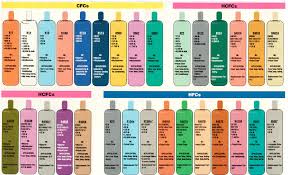Group calls for exemption from Eco-design Regulations
BELGIUM –A number of powerful manufacturing groups have called for an exemption of spare parts from eco-design requirements for fans.
As of 1 January 2015, ventilation equipment must comply with the energy efficiency requirements under the EU327/ 2011 eco-design regulation for fans. This includes replacements fans used as spare parts in existing products.
HVAC manufacturers’ representative groups were joined by members of the electronics industry. The latter argued that replacing existing fans with functional models which comply with eco-design requirements is disproportionately difficult technically and also damaging to the environment.
EPPE, representing the European refrigeration, industrial air conditioning and heat pump industry was joined by the European Association for the ventilation industry (EVIA), the powerful Japanese Association of Air Conditioning and Refrigeration Equipment Manufacturers JRAIA. The Association of Japanese companies in Europe (JBCE) and DigitalEurope, representing the European digital technology industry also joined them in claiming an exemption for spare parts.
While supporting the eco-design standards in general, the group argued that in this particular case, it is impossible to simply replace a fan without affecting other components of a product. Furthermore, the group argued that this entails technical modifications which may be extensive if the product’s overall performance were not to be adversely affected. For example, if an AC fan must be replaced by an EC fan, it is necessary to change the controls. This requires additional new electronic cards and can cause serious complications especially in Building Management Systems.
The group also declares that repairing current leakage requires changes in security devices, documentation and that the document of compliance must also be adapted accordingly and this demands that the service personnel needs to be trained to handle the new fans. The group maintains that the non-application of technological changes required could have a significant impact leading to security issues, performance loss, and CE non-conformity. The implementation of all the necessary changes, on the other hand, will generate disproportionate service cost for the consumer.
In addition to a significant increase in costs for users and manufacturers, the group insists that replacing the fans could generate additional waste production of due to a considerable reduction in the useful lifetime of the equipment in case of fan failure .
The group is concerned that although manufacturers can store existing fans, it will be difficult to predict the amount of fans needed to repair failed installations as failure rarely occurs in the first years of use. All spare parts that are not used will therefore become waste products, the group states.
Furthermore, given the significant additional repair costs, consumers may opt for a new appliance rather than repair their existing product. Again, the cost and waste generated will be greater since the useful life of the device will be significantly reduced.














